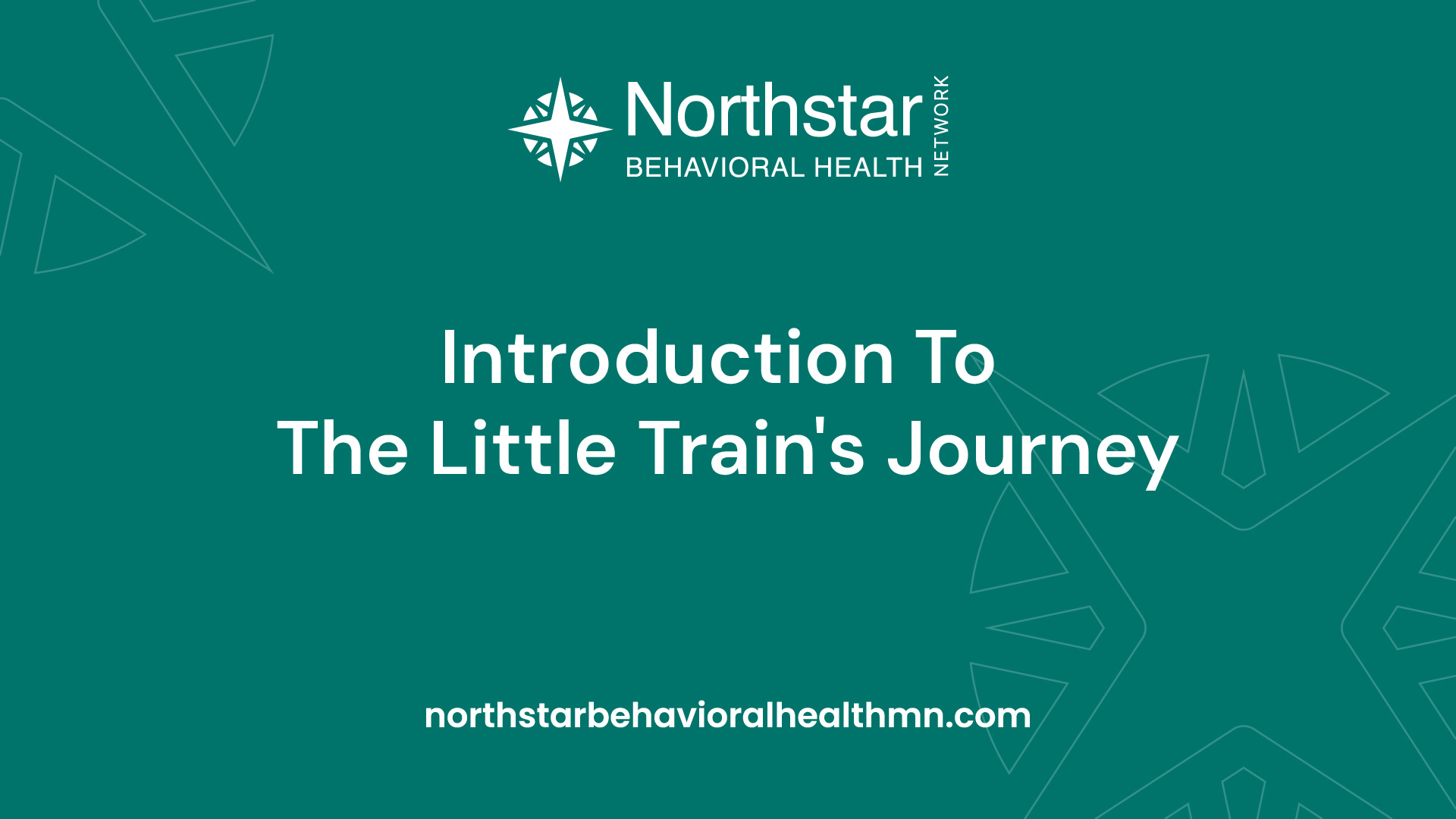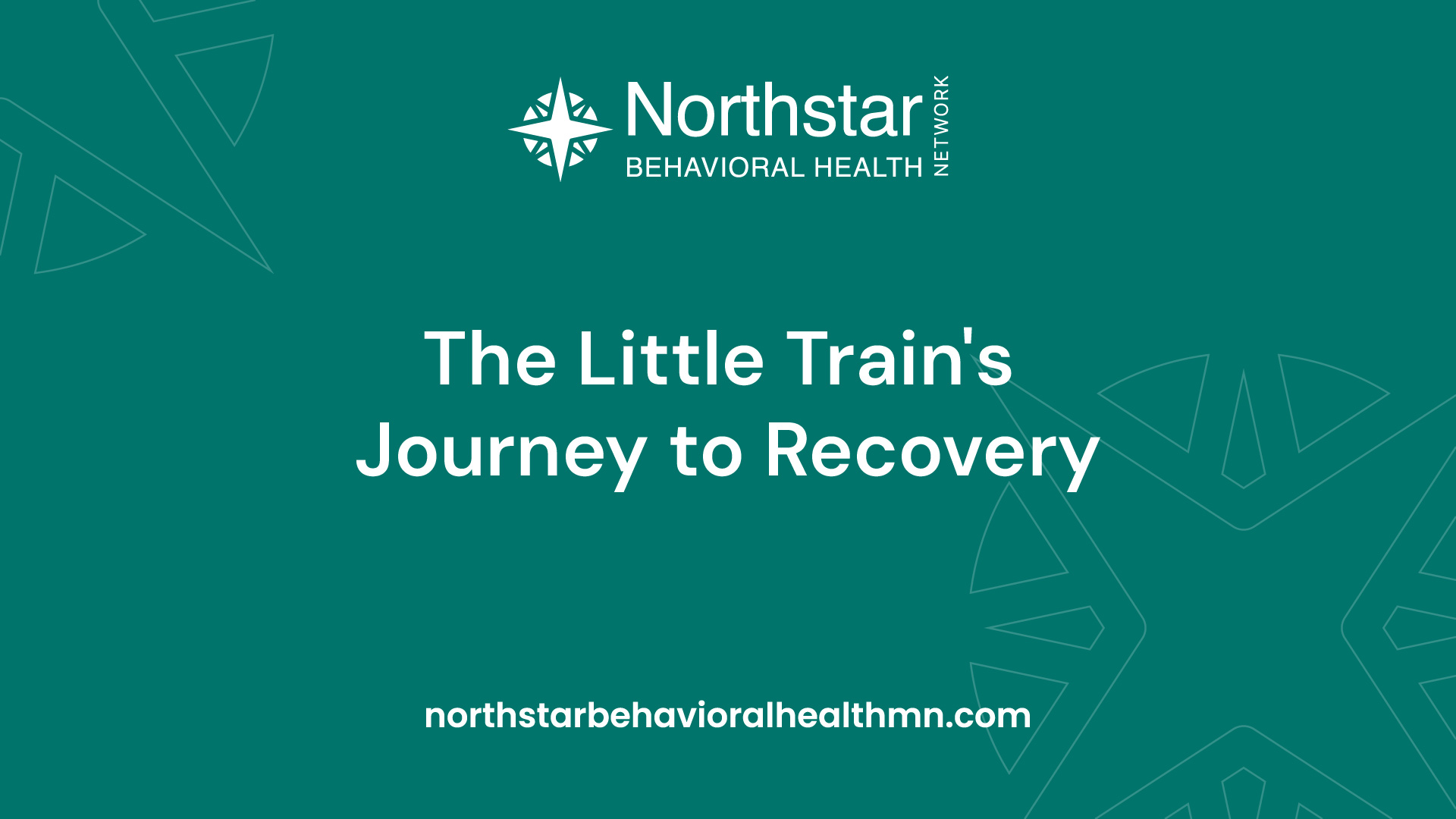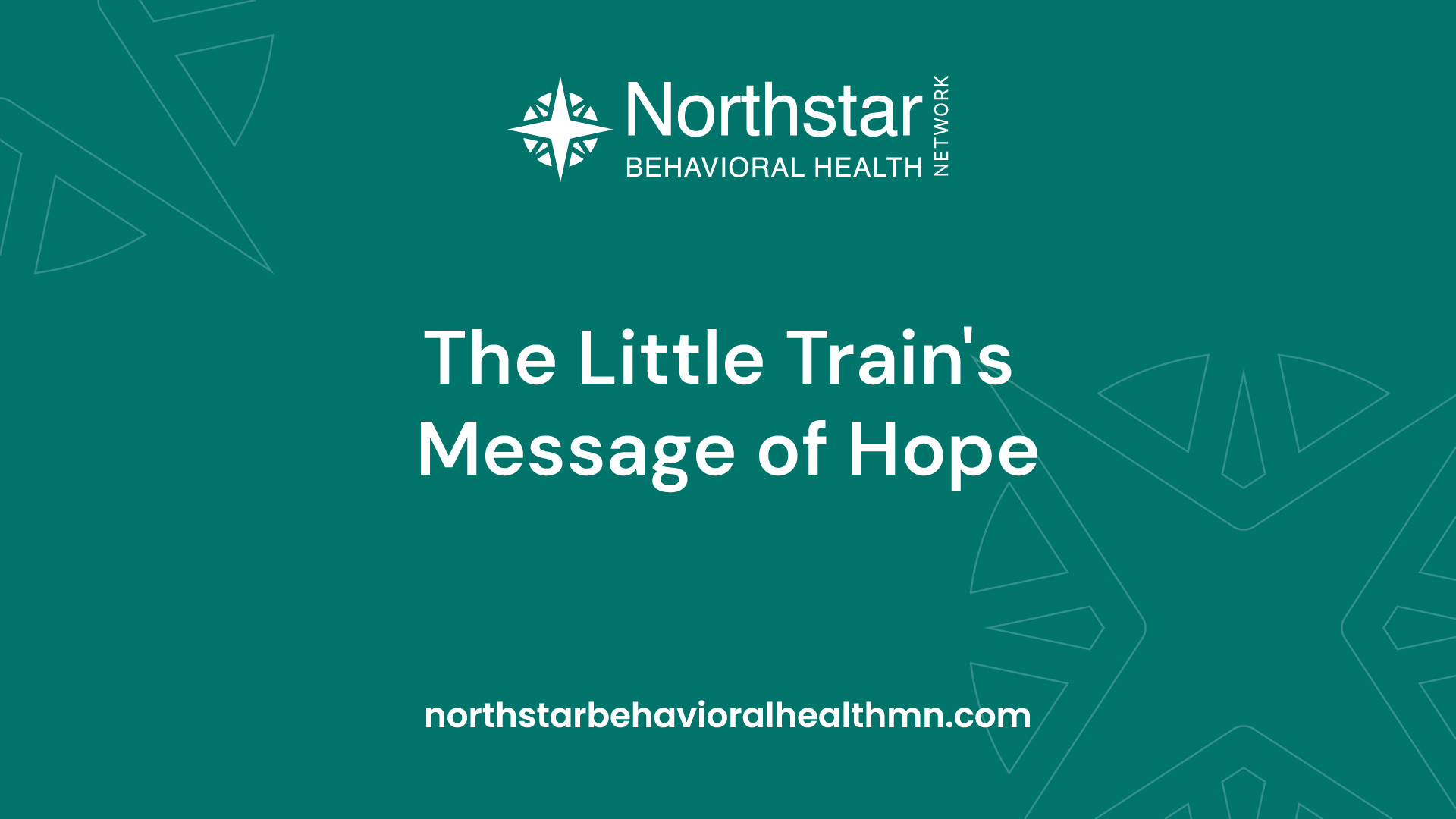August 4, 2024
How The Little Train Overcame Addiction
Conquering Addiction And Bringing Hope.


Introduction To The Little Train's Journey
In the face of addiction, the little train seemed to have lost all hope. Struggling with the weight of substance abuse, it felt as though it couldn't escape the destructive cycle. However, this is a story of resilience, determination, and the power of the human spirit. The little train's journey to recovery serves as an inspiration to those who may be facing similar challenges.

Understanding the Power of Persistence
Addiction can be a formidable opponent, affecting individuals and society as a whole. It not only takes a toll on one's physical and mental well-being but also has economic ramifications. The power of persistence lies in the ability to overcome these challenges and break free from the grip of addiction.
By acknowledging the impact of addiction and recognizing the need for change, the little train took its first step towards recovery. This journey required unwavering commitment and a belief in the possibility of a better life. The power of persistence propelled the little train forward, even when faced with obstacles along the way.
Understanding the power of persistence means recognizing that recovery is not a linear path. It may involve setbacks and moments of doubt, but with determination and a support system in place, the little train continued to press forward. The journey to overcoming addiction is a testament to the strength of the human spirit and the transformative power of perseverance.
In the following sections, we will delve deeper into the challenges of addiction and the steps taken by the little train to reclaim its life. We will explore the tools and resources that aided its recovery, as well as the positive changes that came with building a new life. The little train's story serves as a message of hope, inspiring others to believe in their ability to overcome their own struggles. Join us as we uncover the power of persistence and the transformative journey of the little train.
Facing Addiction
In order to understand the journey of the little train that couldn't overcoming addiction, it is important to recognize the challenges of addiction and the impact it has on individuals and society.
Recognizing the Challenges of Addiction
Addiction is a complex and multifaceted issue that can affect individuals from all walks of life. It is characterized by a compulsive need to engage in harmful behaviors, despite the negative consequences that may arise. Recognizing the challenges of addiction is an important step towards seeking help and embarking on the path to recovery.
Addiction can manifest in various forms, including substance addiction (such as drugs and alcohol) and behavioral addictions (such as gambling or compulsive eating). It is important to note that addiction is not a choice or a moral failing, but rather a chronic disease that affects the brain and behavior. It can lead to significant physical, psychological, and social consequences for the individual.
One of the challenges of addiction is the powerful hold it can have on an individual's life. The intense cravings and compulsive behaviors associated with addiction can make it incredibly difficult to break free from its grip. Additionally, addiction often co-occurs with other mental health disorders, such as depression or anxiety, further complicating the recovery process.
The Impact of Addiction on Individuals and Society
The impact of addiction extends beyond the individual struggling with the addiction. It affects families, relationships, and communities, as well as the broader society. Understanding the far-reaching consequences of addiction is essential in addressing this issue effectively.
On an individual level, addiction can lead to deteriorating physical and mental health, strained relationships, financial difficulties, and legal problems. It can disrupt all aspects of a person's life, including their work, education, and personal well-being. The toll of addiction on an individual's quality of life cannot be underestimated.
At a societal level, addiction poses significant economic, social, and healthcare challenges. The economic burden of addiction includes healthcare costs, lost productivity, and increased criminal justice expenses. Substance abuse contributes to higher rates of accidents, injuries, and violence, placing a strain on emergency services and healthcare systems.
By recognizing the challenges of addiction and understanding its impact, individuals and society can work together to address this issue effectively. Seeking support, resources, and treatment is vital for those struggling with addiction. To explore available resources and treatment options, visit our article on economic effects of alcohol and drugs.
By shedding light on the challenges of addiction and its impact, we can pave the way for a better understanding and support system for individuals on their journey to recovery.
The Little Train's Journey to Recovery

The Little Train's story of overcoming addiction is an inspiring journey of resilience and determination. In this section, we will explore two important aspects of the Little Train's recovery: the decision to change and seeking support and resources.
The Decision to Change
For the Little Train, the first step towards recovery was making the decision to change. This pivotal moment came when the Little Train recognized the negative impact that addiction was having on their life. They realized that continuing down the same path would only lead to further destruction and despair. It was this realization that fueled the Little Train's determination to break free from the grips of addiction.
Making the decision to change is often the hardest part of the recovery process. It requires honesty, self-reflection, and a willingness to face the challenges that lie ahead. It takes courage to admit that addiction has taken control and that a change is necessary. The Little Train's story serves as a reminder that even in the face of adversity, it is possible to find the strength to take the first step towards a better future.
Seeking Support and Resources
Once the Little Train made the decision to change, they understood the importance of seeking support and resources. Recovery is not a journey that can be taken alone. It requires a network of support, guidance, and understanding. The Little Train actively sought out resources and reached out to individuals who could help them on their path to recovery.
Therapy and counseling played a significant role in the Little Train's journey. They worked with therapists who specialized in addiction treatment, allowing them to address the underlying issues that contributed to their addiction. Through counseling sessions, the Little Train gained valuable insights, coping mechanisms, and strategies to navigate the challenges of recovery.
To learn more about therapy and counseling options, check out our article on finding accredited rehab centers to help you get clean.
Support groups and community programs also played a crucial role in the Little Train's recovery. These groups provided a safe space for the Little Train to share their experiences, receive validation, and connect with others who were going through similar journeys. The Little Train found comfort and inspiration in the stories of others, and the support they received helped them stay motivated and committed to their recovery.
To find support groups and community programs near you, visit our article on welcome alumni of addiction treatment.
By making the decision to change and seeking support and resources, the Little Train began their journey to recovery. Their story is a testament to the power of persistence and the transformative effects of seeking help. If you or someone you know is struggling with addiction, remember that you are not alone. Reach out to the resources available in your community and take that first step towards a healthier, happier future.
Tools for Overcoming Addiction
Overcoming addiction is a challenging journey, but with the right tools and support, it is possible to break free from its grip. The little train's journey to recovery teaches us the importance of utilizing various tools to overcome addiction. Here are two essential tools that can play a significant role in the recovery process:
Therapy and Counseling
Therapy and counseling are crucial components of addiction recovery. They provide individuals with a safe and supportive environment to address the underlying issues contributing to their addiction. Therapists and counselors can help individuals explore their emotions, develop coping mechanisms, and gain a deeper understanding of themselves.
There are various types of therapy and counseling approaches that can be effective in addiction recovery, including:
- Cognitive Behavioral Therapy (CBT): This therapy focuses on identifying and challenging negative thought patterns and behaviors that contribute to addiction. It helps individuals develop healthier coping strategies and change their beliefs about substance abuse.
- Motivational Interviewing: This approach helps individuals explore their motivations for change and strengthen their commitment to recovery. It involves a collaborative and empathetic conversation between the individual and the therapist, guiding them to make positive changes.
- Group Therapy: Participating in group therapy provides individuals with a supportive community of peers who have similar experiences. It allows for sharing and learning from others, reducing feelings of isolation and providing a sense of belonging.
By engaging in therapy and counseling, individuals can gain valuable insights, learn effective strategies for managing cravings and triggers, and develop the necessary tools to maintain long-term sobriety.
Support Groups and Community Programs
Support groups and community programs are valuable resources for individuals seeking recovery. These groups provide a sense of belonging and offer peer support from individuals who have experienced similar challenges. Being surrounded by others who understand the struggles of addiction can foster a sense of hope and motivation.
Popular support groups such as Alcoholics Anonymous (AA) and Narcotics Anonymous (NA) provide a structured and supportive environment for individuals to share their experiences, receive encouragement, and build a sober support network. These groups often follow a twelve-step program that guides individuals through a series of self-reflection and personal growth steps.
Additionally, community programs, such as outpatient treatment centers and community outreach initiatives, can provide individuals with access to resources, educational workshops, and counseling services. These programs offer a comprehensive approach to recovery, addressing not only the addiction itself but also the associated challenges, such as mental health issues or social difficulties.
By actively participating in support groups and community programs, individuals can find encouragement, accountability, and a network of individuals who can offer guidance and support on their journey to recovery.
Utilizing these tools, therapy and counseling, and participating in support groups and community programs, can greatly enhance the chances of successful addiction recovery. Remember, every individual's journey is unique, and it's important to find the combination of tools that works best for you. If you're having difficulty finding the right resources or programs in your area, reach out to a helpline or visit your local treatment center for guidance and assistance.
Building a New Life
Once the decision to overcome addiction has been made and support has been sought, the journey towards building a new life begins. This phase involves setting goals, making positive changes, and embracing a sober lifestyle.
Setting Goals and Making Positive Changes
Setting goals is an essential part of the recovery process. It provides direction and motivation for individuals seeking to build a new life free from addiction. These goals can include both short-term and long-term objectives, such as improving physical and mental health, mending relationships, pursuing education or career goals, and finding new hobbies or interests.
To effectively set goals, it is important to make them specific, measurable, attainable, relevant, and time-bound (SMART). This approach helps individuals stay focused, track progress, and celebrate achievements along the way. It's important to remember that recovery is a journey, and progress may come in small steps. Celebrating even the smallest achievements can be a powerful motivator.
In addition to setting goals, making positive changes is crucial for building a new life in recovery. This can involve adopting healthy habits and routines, such as regular exercise, proper nutrition, and adequate sleep. Engaging in activities that promote emotional well-being, such as mindfulness, meditation, or therapy, can also be beneficial. By making positive changes, individuals can create a supportive environment that enhances their recovery journey.
Embracing a Sober Lifestyle
Embracing a sober lifestyle is an integral part of building a new life in recovery. It involves abstaining from drugs or alcohol and making choices that support a healthy and fulfilling life. This includes avoiding people, places, and situations that may trigger cravings or temptations.
Building a strong support network is essential in embracing a sober lifestyle. Connecting with others who have similar goals and experiences can provide invaluable support and understanding. Support groups, such as Alcoholics Anonymous (AA) or Narcotics Anonymous (NA), offer a community of individuals in recovery who can provide guidance, encouragement, and accountability.
Additionally, family and friends who are supportive of the recovery journey can play a vital role in providing a strong support system.
It's important to remember that recovery is a lifelong process, and embracing a sober lifestyle requires ongoing commitment and dedication. Developing healthy coping mechanisms, learning effective stress management techniques, and finding purpose and meaning in life are all part of this journey. By embracing a sober lifestyle, individuals can experience personal growth, rebuild their lives, and thrive in recovery.
The Little Train's journey to overcoming addiction serves as a powerful reminder that with persistence, support, and a commitment to change, it is possible to build a new life beyond addiction. By setting goals, making positive changes, and embracing a sober lifestyle, individuals can pave the way for a brighter future.
The Little Train's Message of Hope

The story of the little train that couldn't overcoming addiction serves as a powerful message of hope for others who are facing their own struggles. By sharing the little train's journey, it inspires individuals to believe in their ability to overcome addiction and provides them with the strength to persevere.
Inspiring Others to Believe in Their Ability to Overcome
The little train's story is a testament to the power of belief in oneself. When faced with the challenges of addiction, it can be easy to feel overwhelmed and defeated. However, the little train teaches us that even in the face of adversity, it is possible to find the strength within ourselves to overcome.
By sharing the story of the little train that couldn't, we aim to inspire others to believe in their own ability to overcome addiction. Through determination, resilience, and a supportive network, individuals can take the first steps towards recovery. It is important to remember that recovery is a journey, and progress may not always be linear. However, the little train's story reminds us that with persistence and a positive mindset, anything is possible.
Spreading Awareness and Encouragement
In addition to inspiring individuals to believe in themselves, the little train's story also serves as a tool for spreading awareness and encouragement. Addiction is a complex issue that affects not only individuals but also society as a whole. By sharing the little train's journey, we aim to bring attention to the challenges faced by those struggling with addiction and encourage empathy and support.
Through awareness campaigns, educational resources, and community engagement, we can work towards reducing the stigma associated with addiction. By sharing the little train's story, we hope to create a more compassionate and understanding society that supports individuals on their path to recovery.
It is important to remember that seeking help is a crucial step towards overcoming addiction. If you or someone you know is struggling with addiction, reach out to a trusted healthcare professional or explore resources such as accredited heroin rehab centers or outpatient drug rehab centers that can provide the necessary support and guidance.
The little train's message of hope serves as a beacon of light for those on their journey to recovery. By believing in oneself and spreading awareness and encouragement, we can create a society that supports and uplifts individuals facing addiction. Together, we can make a difference and help others find their own path to healing and a brighter future.

.jpg)




.jpg)

